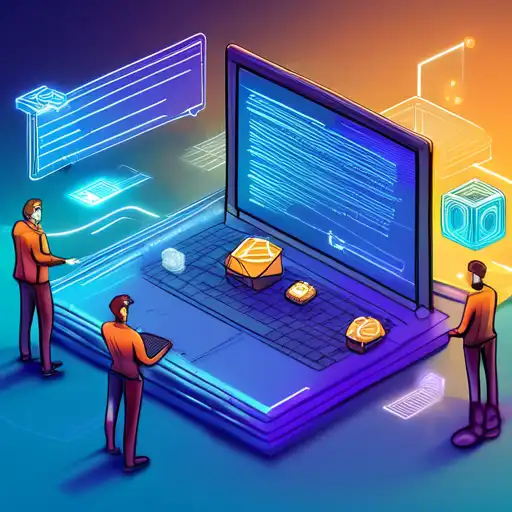Introduction to Smart Contracts
Smart contracts represent a pivotal innovation in blockchain technology, automating agreements without the need for intermediaries. These self-executing contracts with the terms of the agreement directly written into code have revolutionized how we think about trust and transactions in the digital age.
How Smart Contracts Work
At their core, smart contracts operate on the blockchain, a decentralized ledger that records all transactions across a network of computers. When predetermined conditions are met, the contract executes automatically, ensuring transparency and immutability. This process eliminates the need for traditional legal systems, reducing costs and increasing efficiency.
Key Features of Smart Contracts
- Autonomy: Once deployed, smart contracts run without any intermediary.
- Trust: Encrypted and stored on the blockchain, they are secure and tamper-proof.
- Backup: Every node on the network has a copy of the contract, ensuring redundancy.
- Speed: Automated processes significantly reduce the time to execute agreements.
Applications of Smart Contracts
Smart contracts find applications across various sectors, including finance, real estate, and healthcare. From automating insurance claims to facilitating secure and transparent voting systems, the potential uses are vast and varied.
Finance
In the financial sector, smart contracts streamline processes like loans and bonds, reducing the need for manual processing and the potential for human error.
Real Estate
They simplify property transactions by automatically transferring ownership once payment conditions are met, eliminating the need for escrow services.
Challenges and Considerations
Despite their advantages, smart contracts are not without challenges. Issues such as coding errors, legal recognition, and scalability must be addressed to fully realize their potential.
Legal Recognition
The legal status of smart contracts varies by jurisdiction, posing a challenge for widespread adoption.
Scalability
As blockchain networks grow, ensuring that smart contracts can scale without compromising speed or cost is crucial.
Future of Smart Contracts
The future of smart contracts is bright, with ongoing advancements in blockchain technology paving the way for more complex and secure applications. As the technology matures, we can expect to see broader adoption across industries.
For more insights into blockchain technology, explore our Blockchain Basics guide.
